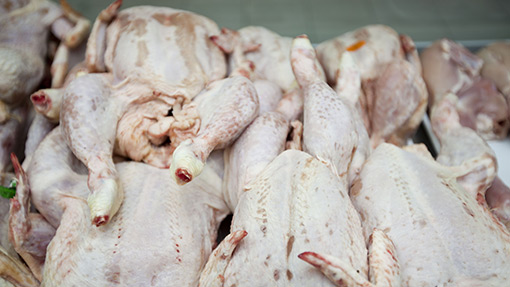Poultry sector commits to fight campylobacter

The NFU, the Food Standards Agency, DEFRA, poultry processors, retailers, producers and other stakeholders have committed to implementing practical measures from farm to fork in a bid to stamp out campylobacter in raw poultrymeat.
At its most recent meeting in February, the Joint Working Group on Campylobacter Reduction heard updates on a number of research projects and trials that are currently being conducted to establish the most and least effective methods for controlling the bacteria.
These include on-farm practices, processing techniques and improved packaging, along with improving consumer education and awareness of the correct handling and storage of raw poultrymeat. NFU president Meurig Raymond said it was essential the industry collaborated if a solution for campylobacter was to be found.
“Campylobacter is not a new issue for the poultry industry. It is a very complex organism which is able to adapt to different environments. It’s incredibly positive to see how much research the industry has undertaken and has in the pipeline for the near future,” he said.
“The Joint Working Group is just one example of how the whole industry has pulled together for the benefit of consumers. We will be hosting a conference at NFU HQ on 28 March to bring stakeholders together to share best practice. Unfortunately, there is no silver bullet, but consumers can be reassured that chicken remains safe to eat when cooked thoroughly.”
Bob Martin, head of foodborne disease strategy at the FSA, said: “Campylobacter is the biggest cause of food poisoning in the UK so it is vital we work together to tackle this problem. We must look at every stage of the food chain to identify solutions that will make a real impact and we welcome the work the NFU and other partners are doing to help us achieve this.”
